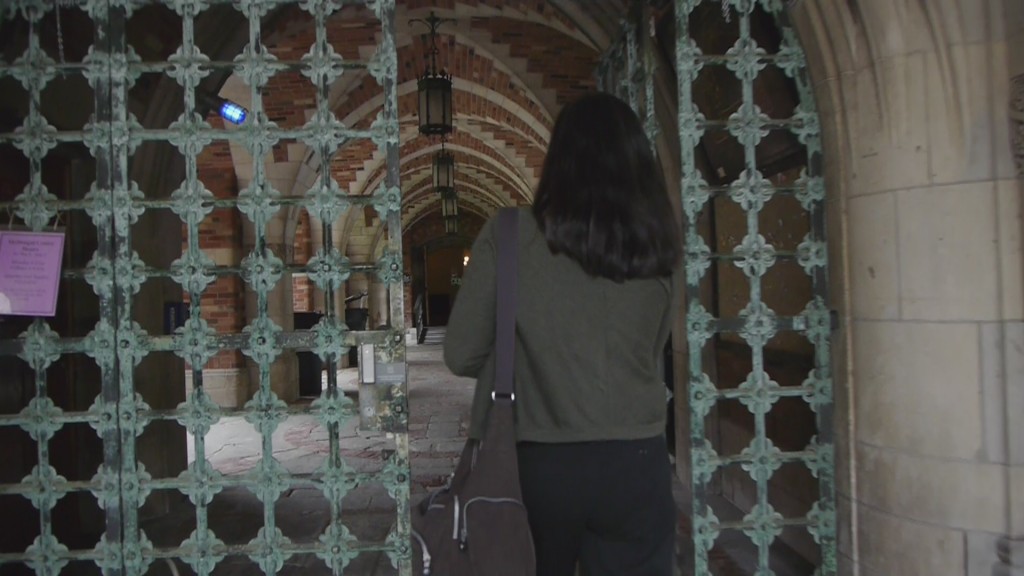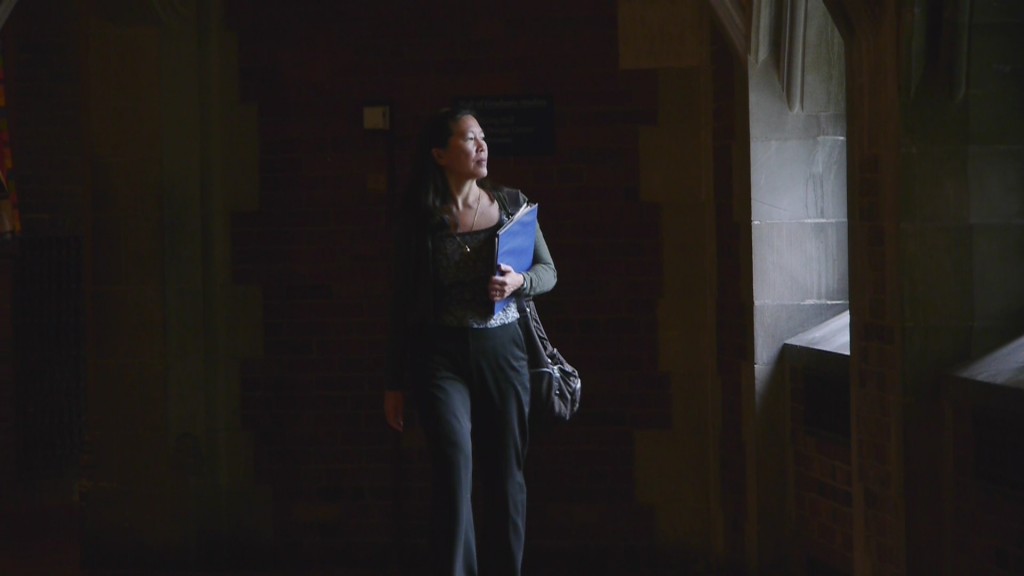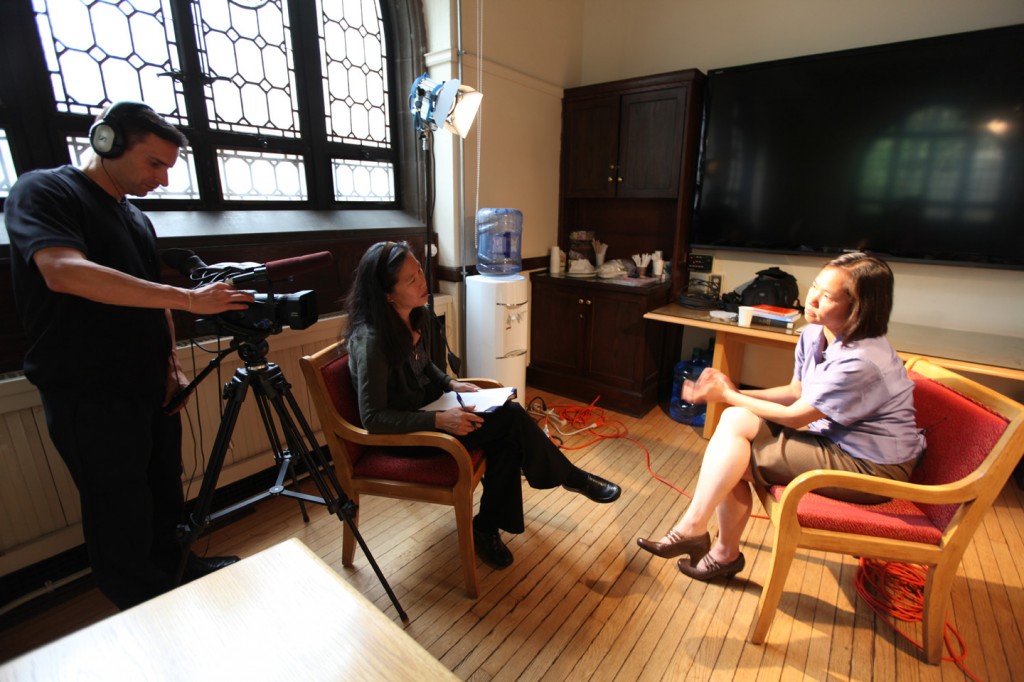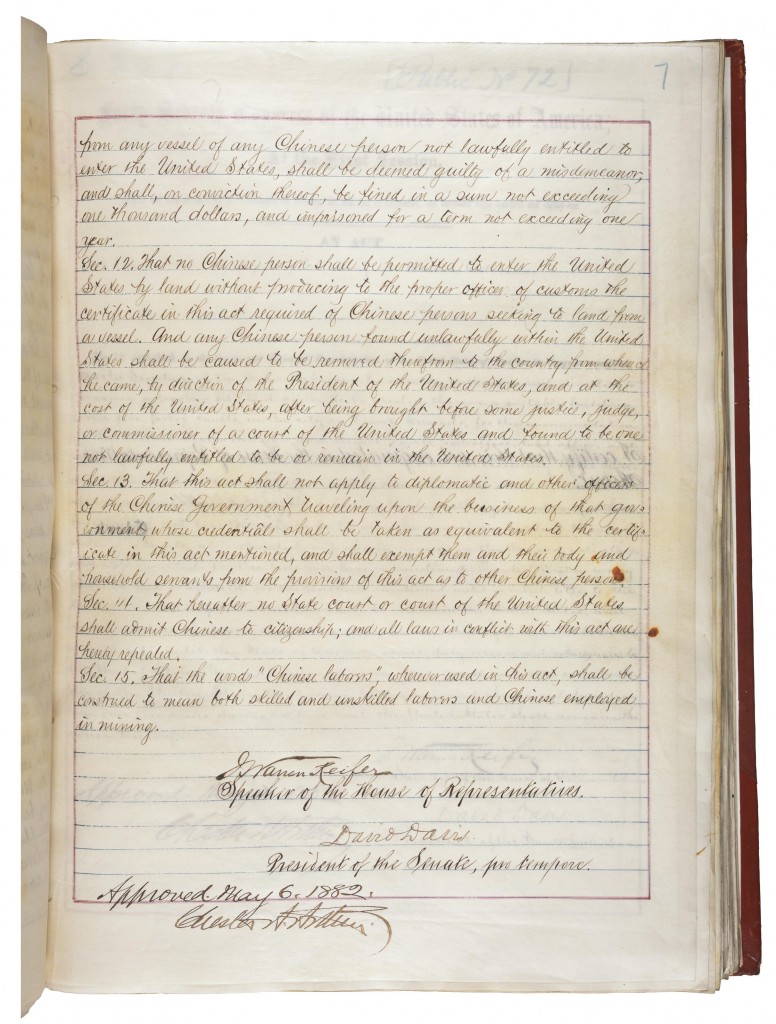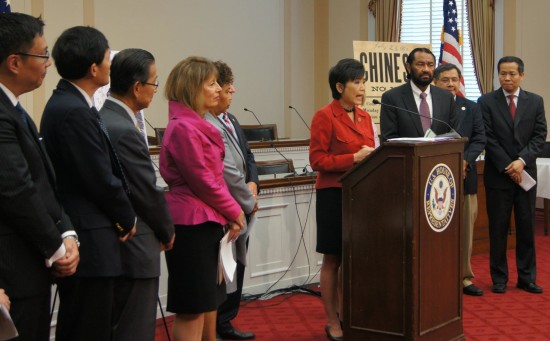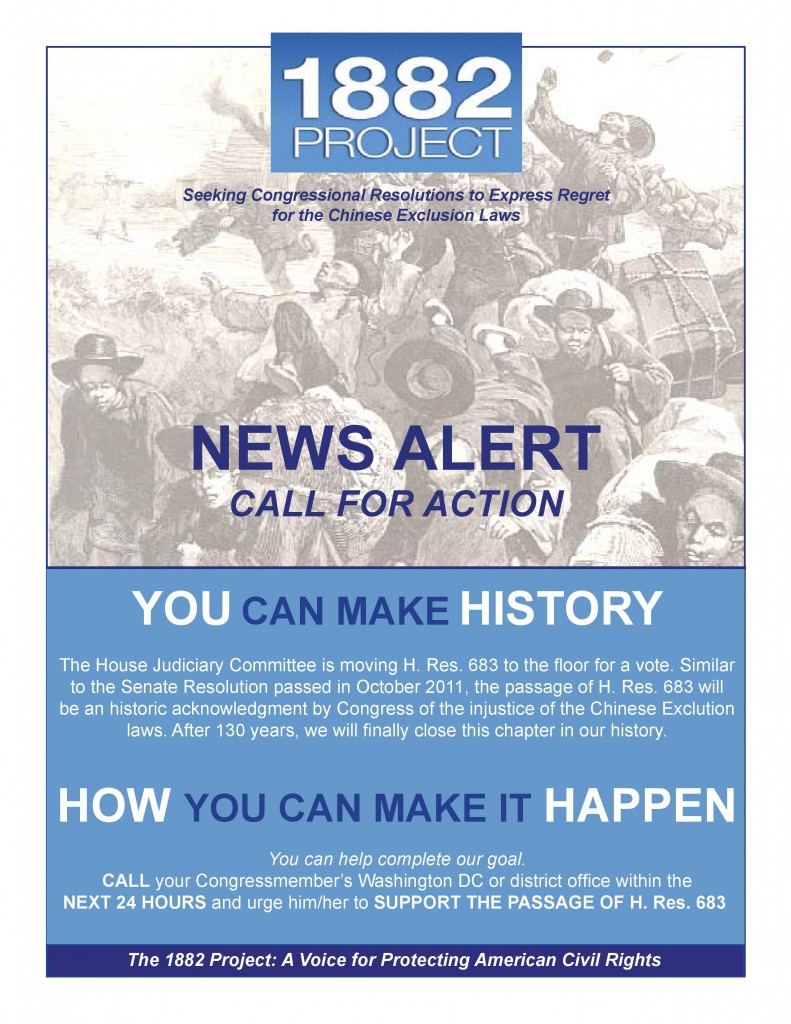The recent FINDING KUKAN shoot at Yale University brought out the perpetual student in me. You can’t help but be awed by the vaulted ceilings and Knights of the Round Table atmosphere of the Hall of Graduate Studies where my interview with Yale Professor of American Studies Mary Lui took place.
The building reminds you how much history has come before you and how much you are ignorant of.
Fortunately the halls of learning at Yale are populated by people like Mary who dedicate their lives to gathering knowledge and disseminating it to people like me.
In trying to understand the social climate that prompted Li Ling-Ai and Rey Scott to risk money and life to make KUKAN, Mary Lui reminded me that the behavior of Chinese Americans like Li Ling-Ai was still governed in part by prejudicial immigration laws enacted against the Chinese — the most infamous one being the Chinese Exclusion Act passed in 1882.
Meant to keep cheap labor from entering the US, the exclusion laws ended up doing much more than that. From restricting the formation of Chinese families, to rendering the few Chinese women around at the time exotic creatures with questionable backgrounds the Exclusion Laws had negative repercussions on even the richest and most educated Chinese Americans. It’s no wonder that with so few Chinese Americans around that stereotypes and misconceptions about them would form.
I came back to Hawaii much better prepared to appreciate the historic bill recently passed by Congress to officially apologize for the prejudicial laws that targeted Chinese and other Asians in America for over 80 years.
One of the stereotypes I had about my own ethnic background was that Chinese don’t make waves and passively accept their fate, letting bygones be bygones.
The courageous efforts of people like Congresswoman Judy Chu and organizations like the 1882 Project belie that stereotype and bring a new validation to the history of Asians in America that will hopefully prompt more stories about an era of exclusion that we still don’t know enough about.
Are there ways that exclusion laws have affected your life? Let us hear from you.

